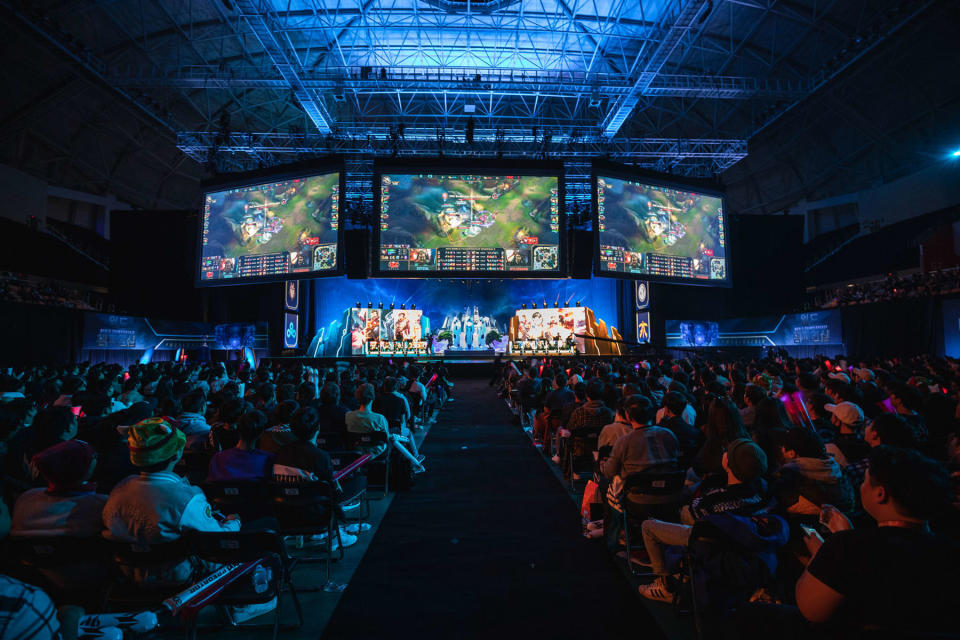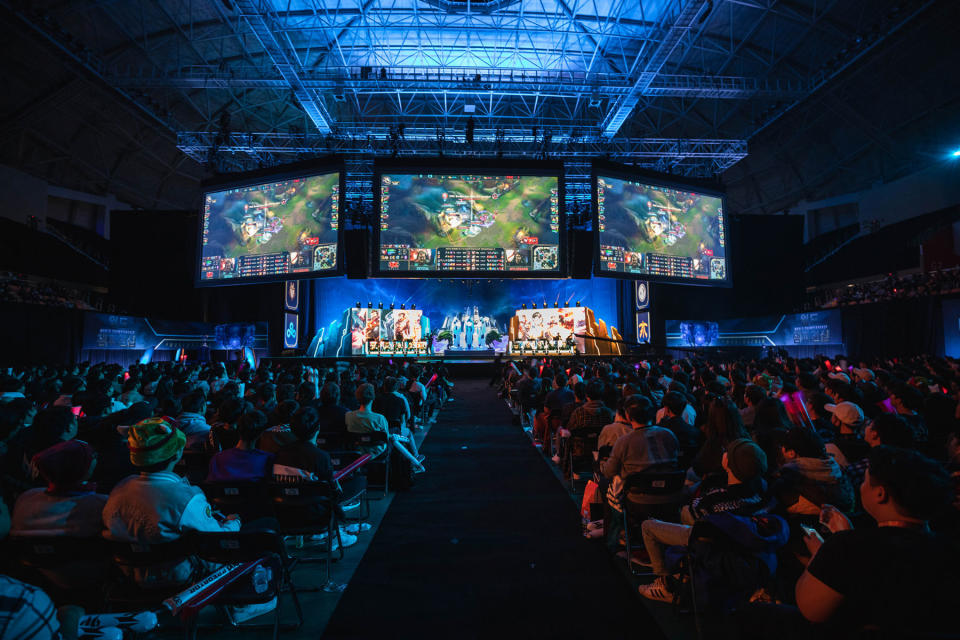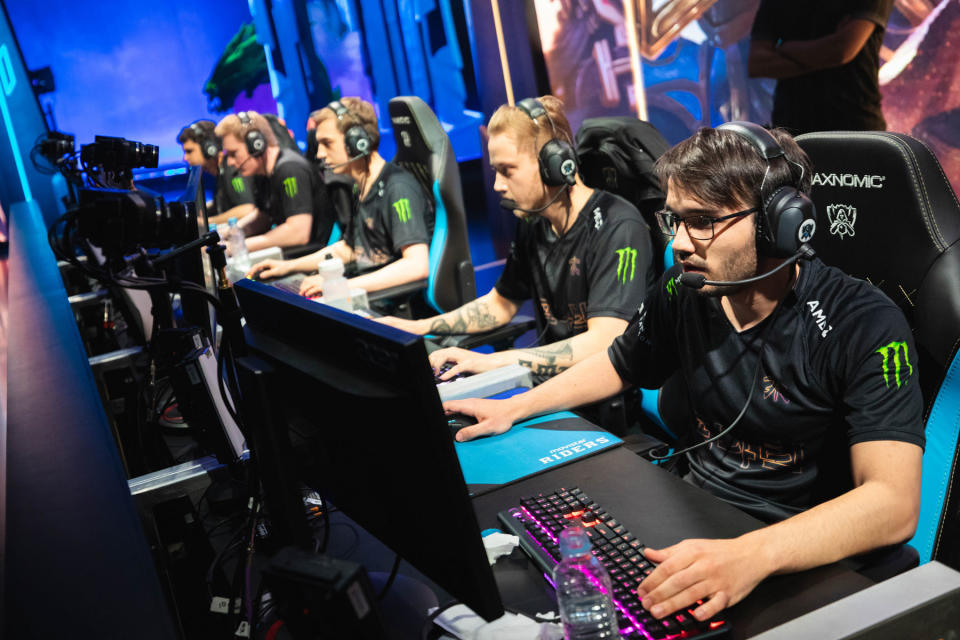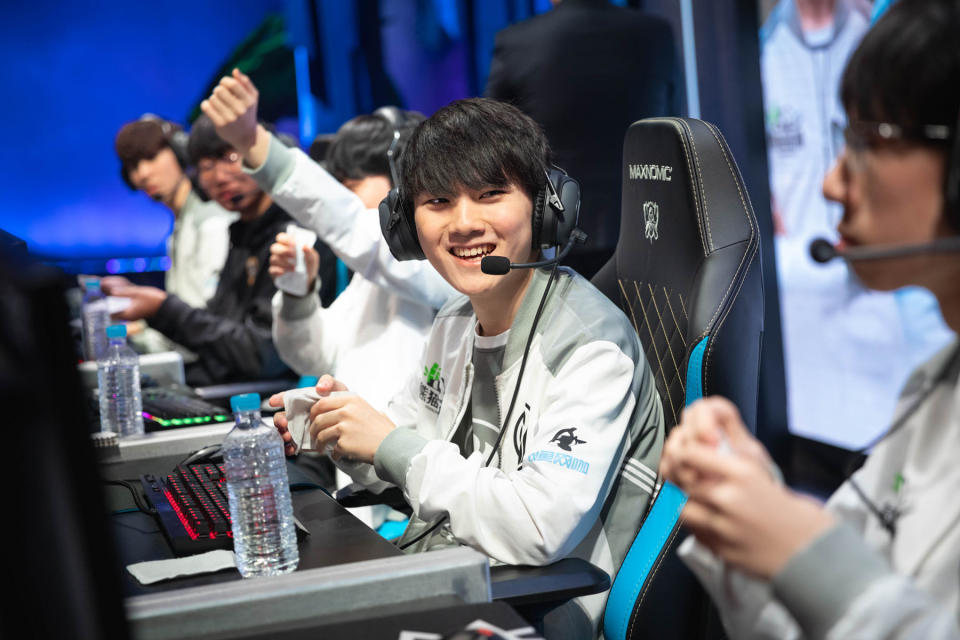League of Legends World Championship returns to NA in 2021
Riot wants to move on from this year’s organizational disaster.
Today, Riot Games announced the regions that will host the League of Legends World Championship for 2019, 2020 and 2021. Following the grand final at the Incheon Munhak Stadium this weekend, the tournament will travel to Europe in 2019. The exact locations of the play-in, group, quarterfinal and semifinal stages are unclear, but Riot has confirmed that the finals will be held at the AccorHotel Arena in Paris. The competition will then move to China in 2020 and North America in 2021. No cities or venues have been confirmed for these two regions, unsurprisingly.
For Riot, this is an unusually early announcement.
The company struggled to secure a venue for the grand finals in South Korea this year. On August 1st, two months before the start of the tournament, the video game developer published a blog post confirming the dates and cities that each stage would be played in. It apologized for the delay and admitted that its first-and second-choice venues for the finals had fallen through. "Everything that could have gone wrong ended up going wrong," said Derrick Asiedu, head of global events at Riot.
The company was obviously embarrassed. The logistical nightmare reflected poorly on the esport and made it harder for teams, journalists and fans -- both international and domestic -- to book flights and accommodation for the event. Those who did no doubt spent more than if they had known about the host cities and venues earlier. Of course, if a team doesn't qualify until the last minute, it's hard to be this organized. Some teams, however, take the risk and book their flights before securing a first-, second- or third-seed spot. Either way, the knowledge is helpful.

Why does this all matter?
Stability. Riot wants to grow League of Legends and, more important, create an esport that is financially sustainable. That's why the company switched to a franchising model for the North American league (NA LCS) last year. Existing teams paid $10 million, while newcomers, such as 100 Thieves and Golden Guardians, paid $15 million to enter a league without promotion or relegation, similar to the NFL. Riot's European league (EU LCS) will be switching to the same franchising model next year. Eliminating the threat of relegation should, the theory goes, give teams the confidence to invest in their players, coaching staff and training facilities.

At the same time, Riot has been looking at ways to cut costs. The company held MSI, a midseason invitational between some of the world's best teams, inside its European studio in Berlin, which holds roughly 200 people, rather than a bigger and more exciting independent venue. It also compressed the group stage of this year's world championship into eight days, rather than the usual two weeks, and had its English commentators shoutcast remotely in Los Angeles for most of the tournament. These decisions have upset some fans who fear the game is in decline.
Booking venues early is an obvious way to save money.
Riot later explained that its budget for esports hadn't changed. The company was, however, experimenting with ways to cut costs throughout the season. "Instead of just making esports happen and be awesome," Asiedu said on Reddit, "we also want to focus on making this a financially sustainable endeavor that can last decades or more."
Booking venues early is an obvious way to save money. Fans, however, are now scrutinizing Riot's decision to book the AccorHotel Arena in Paris. The indoor venue holds 20,300 people and has been used for a wide variety of music, sports and theatrical events. The Incheon Munhak Stadium, however, can host up to 50,256 spectators. That's a huge drop, although the audience for League of Legends is larger in South Korea. It's better to sell out a smaller venue with a louder, more exciting atmosphere than part-fill one that's three times larger. That's one reason Riot chose the Staples Center in Los Angeles, with a capacity of 21,000, for the finals in 2016.
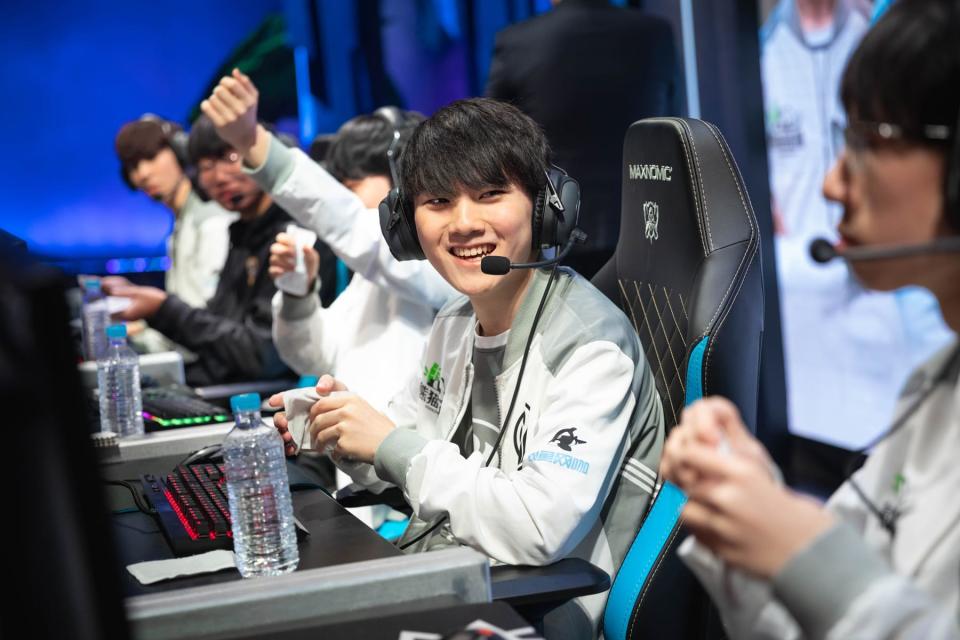
It's good, too, that Riot is continuously moving the tournament. South Korea might have the biggest player and fan base, but the esport is global and Riot should be commended for trying to nurture every region.
Not surprisingly, there are concerns that some of the 2019 and 2021 tournaments will be held in the EU and NA LCS studios, respectively. It would make sense for the play-in stages, given that the venues are cheap to use -- Riot owns them, after all -- and the matches are less important. If the studios were used for the group or knockout stages, however, they would lack the seats and atmosphere that many viewers want and expect.
The solution, many feel, is to increase revenue. If League of Legends can generate more money through advertising, sponsorship, merchandise or broadcast rights, Riot would have the cash necessary to hire the most extravagant venues for every stage of the world championship. Booking locations early, however, can be just as effective and should free up some budget for other areas. Today's announcement is, therefore, a welcome sign of stability and sensible resource management. Here's hoping the situation in which Riot found itself this year never happens again.

